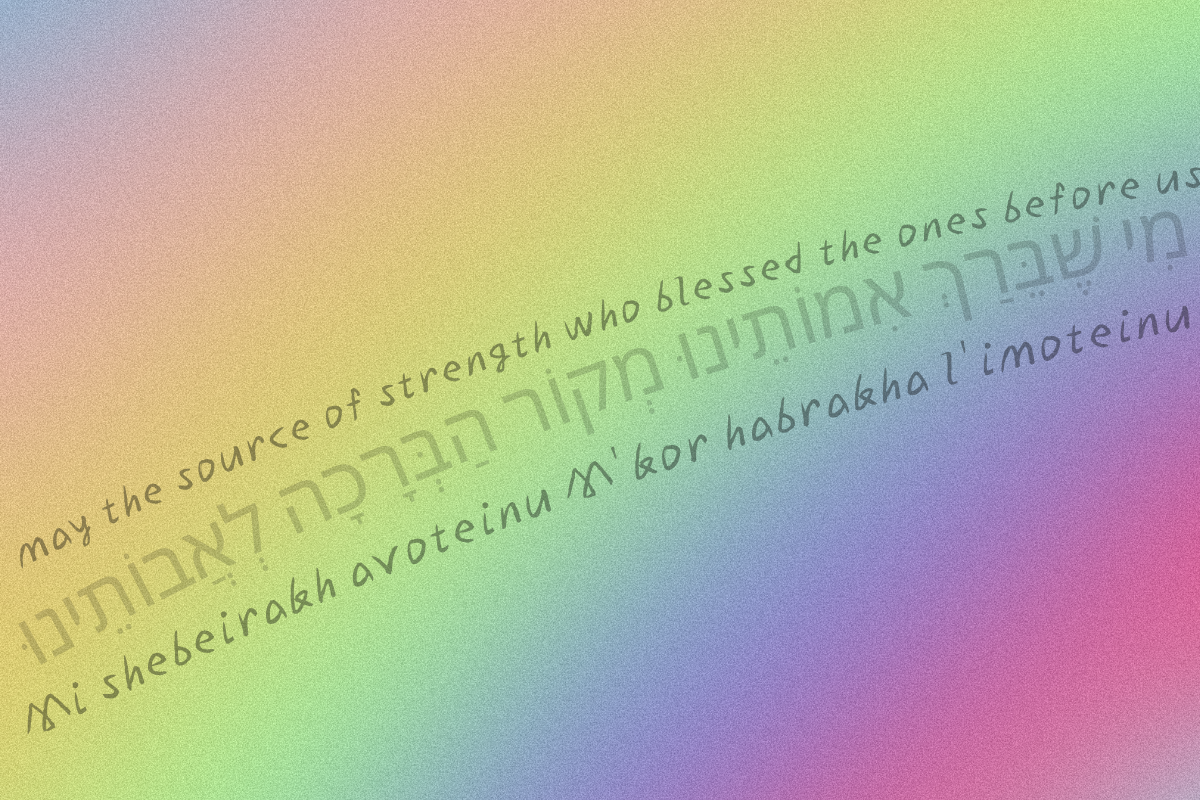I didn’t grow up listening to Debbie Friedman, and I’m kind of jealous of everyone who did. The late Jewish musician from Utica, New York revolutionized the way many American Jews connect with Judaism, giving catchy, heartrending and rousing tunes to accompany Jewish prayers, holidays, Hebrew letters and concepts. Her folk tunes made these words more accessible to everyone, and more equitable, especially for women.
Perhaps her most well-known and widest-spread tune is her melody for “Mi Sheberach,” a prayer for healing — a tune that always tugs at the heartstrings and words that are almost always needed for healing broken hearts, minds and bodies.
“My objective is to involve people in the experience,” Friedman once said about her music. “I try to make prayer user-friendly. Because the music is in a familiar genre, people are able to make the connection between the music and the text. The real power is in the poetry of the liturgy, how moving and stirring it can be, connecting us to our deepest and most precious ideas, hopes and fears.”
Like many of her songs, Friedman wrote her “Mi Sheberach” melody for a particular person, a friend who was celebrating her 60th birthday in a Simchat Chochma (celebration of wisdom). “My friend was having a very difficult time in her life, and a number of her friends were also struggling,” Friedman recalled. “Yet she had arrived at this age and she was determined to embrace it.” The text was perfect for the occasion: a call for the one who has blessed our forefathers and foremothers to bless someone with healing and strength and enlivening in their bodies and soul. Since it was introduced to the Reform movement more than three decades ago in 1993, it became, according to My Jewish Learning, “the fastest adopted liturgical melody in the Reform and Conservative movements.”
That friend was Marcia Cohn Spiegel, a woman who dedicated her life to talking about difficult topics within the Jewish community — from addiction to domestic violence. Friedman collaborated on the song with Rabbi Drorah Setel, who like Friedman herself, cared about making Jewish liturgical text more accessible to all genders, and was deeply immersed in the AIDS crisis, one that affected many of their friends. The words of “Mi Sheberach” felt complicated in light of the epidemic.
“How, we wondered, could we ask for refuah sh’leima, for a ‘complete healing,’ for people who had what was at the time a terminal illness? It seemed not only cruel but contrary to the Jewish prohibition against knowingly praying for something in vain,” Setel shared with the Forward, “We thought it would be more appropriate to focus on the possibility of spiritual healing, an experience of wholeness and blessing even in the face of death. We kept the rabbinic phrase refuah sh’leima but redefined it as the ‘renewal,’ rather than the repair, of body and spirit.”
Perhaps my favorite tidbit of the many tidbits about this song and prayer is that Mandy Patinkin has admitted to singing it to his dog every day. In a video shared on his social media, Patinkin, of Broadway and “Homeland” fame, enumerated the three prayers he would sing to his dog, Becky, to his son Gideon — who happened to have had Debbie Friedman play at his bar mitzvah. Patinkin and Friedman were close friends for many years: They had an “immediate connection,” he recounted in a tribute event at the 92nd Street Y in New York. “She just enveloped me with her love,” he shared, “and that friendship just grew and grew and grew.”
They had a lot in common, he told the crowd, saying they were both at their best “when we would just be simple, and clear, and be a hose where the music came in and the words and the music just came out.”
The music does seem to just come out of Friedman when you watch her sing. Every time she sang “Mi Sheberach” in concert, she would sing it twice. Once just her, singing for healing for the crowd, and once, together, singing in unity. That way, everyone in the room got to have a blessing of healing.
It has been over a decade since Friedman’s passing, but every day since then, her memory has not been just a blessing, but has brought healing and peace to Jews across this nation.
Join Kveller’s partner site My Jewish Learning for their weekly Mi Sheberach Moment, a brief online gathering led by a rotating group of rabbis and educators to say this prayer in community.








